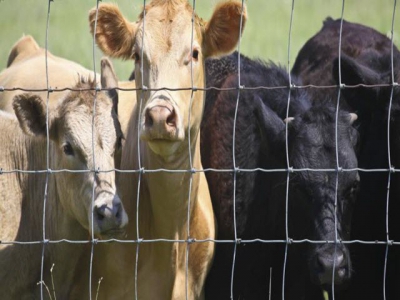Injectable trace minerals may improve mineral status of beef heifers

Strategy may have variable effects on reproductive performance.
Photo by ndykatz/iStock/Thinkstock
It can be a struggle for beef cattle producers to maintain mineral status, especially for cattle on pasture, so many implement a trace mineral supplementation program, according to the University of Illinois.
However, research on newer trace mineral strategies, including injectables, has been inconsistent and incomplete. In a set of recent studies, University of Illinois animal scientists study the effects of the injectable trace mineral (Multimin 90) on reproductive performance in beef heifers.
Researchers with the university recently discussed the effects of injectable trace minerals on dairy cattle challenged with aflatoxins.
“We definitely have heard a lot of producers asking, ‘What about this product? Does it work?’ So, we started to do studies on it,” Dan Shike, associate professor in the University of Illinois department of animal sciences, said.
In the first study, published in Translational Animal Science, Shike and his research team injected heifers with the injectable trace mineral product at a rate of 1 mL/68 kg at 33 days prior to artificial insemination (AI). The heifers were spread out in three herds across Illinois: Champaign, Simpson and Baylis.
“In those three herds, we had variable results,” Shike said. “In two of the herds, we had very good AI conception rates in our controls, so we were already doing well and did not see a response to the injectable. In the last herd, the controls were below where we would like to see. By giving the [injectable], there was an improvement in conception rates. In that particular case, it appeared that trace mineral was limiting.”
In the second study, published in the Journal of Animal Science, Shike and his team injected the product into heifers every 90 days from weaning to final pregnancy confirmation at variable rates according to age, bodyweight and label specifications. It is the first published study to evaluate the effects of repeated trace mineral injections, the announcement said.
In this case, the injections had no effect on reproductive performance, but selenium and copper status improved compared to animals that received only saline injections, Shike said.
In explaining the result, Shike said it’s complicated. “In pregnancy, there are so many factors, but the result is either yes or no. In this particular study, the limiting factor was not trace mineral. We had a tougher forage year, so all the heifers were a little lighter, thinner than expected. In this case, overall energy status was likely the most limiting,” he said.
Related news
 Newtrient cites progress on dairy manure management, nutrient recovery
Newtrient cites progress on dairy manure management, nutrient recovery Inaugural progress report looks at advances in nutrient management and manure-based products.
 Cattle, poultry in-feed drug suspected in horse deaths
Cattle, poultry in-feed drug suspected in horse deaths The FDA is investigating a series of horse deaths reportedly linked to the presence of a cattle and poultry drug in contaminated feed.
 Lallemand offers tips to avoid fall slump in dairy cow production
Lallemand offers tips to avoid fall slump in dairy cow production Change from old corn silage to freshly cut forage can create problems